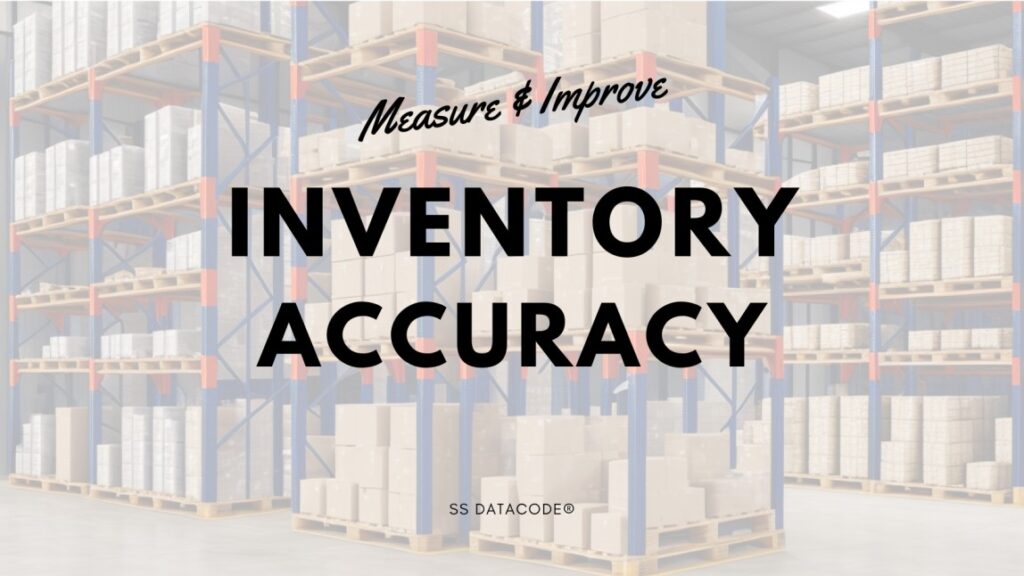Introduction
In the dynamic supply chain management landscape, accurate inventory tracking stands out as a linchpin for success. Warehouse managers recognize that precise inventory control is not just a routine task but a strategic necessity. The reliability of inventory data directly impacts customer satisfaction, operational efficiency, and overall profitability. In this blog on inventory accuracy in warehouse management, we will look into the importance of inventory accuracy, how to measure and improve inventory accuracy, recent developments in inventory management, and the future of inventory accuracy in warehouse management.
Importance of Inventory Accuracy in Warehouse Management
Inventory accuracy is the foundation of effective warehouse management, playing a pivotal role in ensuring smooth operations, customer satisfaction, and business success. Let’s look into the key reasons highlighting the importance of inventory accuracy in warehouse managementt:
Customer Satisfaction
Order Fulfillment Efficiency
Reduced Holding Costs
Optimized Replenishment
Enhanced Visibility
Minimized Order Errors
Regulatory Compliance
Financial Accuracy
Effective Demand Planning
Prevention of Shrinkage and Theft
Operational Efficiency
Inventory accuracy is not just a measure of the quantity of products in a warehouse; it is a critical factor that impacts various aspects of warehouse management, supply chain efficiency, and customer satisfaction. Businesses that prioritize and invest in maintaining high levels of inventory accuracy are better positioned to thrive in a competitive and dynamic market.

How to measure and improve inventory accuracy in warehouse management?
Measuring and improving inventory accuracy is crucial for the efficient operation of any business. Following are the steps you can take to assess and enhance inventory accuracy:
Measuring Inventory Accuracy
Inventory Accuracy can be measured by 5 different methods as below:
Regular Cycle Counts
ABC Analysis
Variance Analysis
Order Accuracy Metrics
Turnover Ratio
Regular Cycle Counts
Conduct frequent cycle counts to compare actual inventory levels with recorded levels. This involves physically counting a subset of your inventory on a regular basis.
ABC Analysis
Categorize your inventory into A, B, and C categories based on value. Focus your accuracy measurement efforts on high-value items (A items) as they often contribute significantly to financial performance. Learn more here
Variance Analysis
Calculate the variance between recorded and actual inventory levels. Analyze discrepancies to identify patterns, such as specific products, locations, or processes that may be prone to errors. Learn more here
Order Accuracy Metrics
Assess the accuracy of order fulfillment by comparing the items picked and shipped to what was actually ordered. This helps identify discrepancies in the outbound process.
Turnover Ratio
Calculate the inventory turnover ratio to understand how quickly items are moving. A high turnover ratio may indicate efficient inventory management, while low turnover ratio may suggest overstocking or inaccurate records. Learn how to calculate the Inventory Turnover Ratio by visiting the Investopedia page.
Improving Inventory Accuracy
There are several ways of improving Inventory Accuracy. A few of them are listed below:
Implement Barcode Scanning and RFID:
Use barcode scanning and RFID technologies for data entry and tracking. This reduces manual errors and provides real-time visibility into inventory movements.
Invest in a Robust Inventory Management System (IMS):
Implement an advanced IMS that integrates with other systems like ERP and WMS. A well designed IMS automates processes, minimizes errors, and improves overall accuracy.
Training and Education:
Train staff on proper inventory management procedures, emphasizing the importance of accurate data entry, labeling, and recordkeeping. Continuous education ensures everyone is aligned with best practices.
Standard Operating Procedures (SOPs):
Develop and enforce clear SOPs for all inventory-related processes, including receiving, picking, packing, and shipping. SOPs standardize procedures and reduce the likelihood of errors.
Regular Audits and Reconciliations:
Conduct regular audits and reconciliations to identify discrepancies between physical counts and recorded levels. Investigate and rectify any discrepancies promptly.
Supplier Collaboration:
Collaborate with suppliers to improve the accuracy of incoming shipments. Ensure that the received quantities match the quantities on purchase orders and packing slips.
Demand Planning and Forecasting:
Improve forecasting accuracy to prevent overstock or stockouts. Utilize historical data and advanced analytics to predict demand patterns more accurately.
ABC Inventory Management:
Prioritize inventory management efforts based on the ABC analysis. Devote more resources to high-value items that have a significant impact on overall performance.
Technology Integration:
Integrate new technologies, such as machine learning and artificial intelligence, to analyze historical data and enhance forecasting accuracy.
Continuous Improvement Culture:
Foster a culture of continuous improvement. Encourage feedback from staff involved in inventory management and use that feedback to refine processes over time.
By combining regular measurement with proactive improvement strategies, businesses can enhance inventory accuracy, reduce costs, and improve overall operational efficiency. Regularly reassessing and adjusting your approach ensures that your inventory accuracy practices remain effective in the dynamic business environment.

Recent Developments in Inventory Management
Recent years have witnessed significant advancements in inventory management technology. The rise of Internet of Things (IoT) devices and sensors enables a more granular level of tracking, enhancing visibility into the supply chain.
Cloud-based inventory management solutions provide scalability and accessibility, allowing for real-time collaboration across different locations. Artificial intelligence (AI) and machine learning (ML) algorithms are increasingly being applied to analyse historical data and forecast demand with greater accuracy.
The Future of Inventory Accuracy
Looking ahead, the future of inventory accuracy is likely to be shaped by emerging technologies. Blockchain, with its decentralized and secure ledger system, holds the potential to revolutionize traceability and transparency in the supply chain.
Advanced robotics and autonomous systems may play a larger role in the physical counting and movement of inventory. The integration of augmented reality (AR) and virtual reality (VR) technologies could further enhance the efficiency of warehouse personnel in managing inventory.

Conclusion
In conclusion, inventory accuracy remains the bedrock of successful warehouse management. The importance of accurate inventory control cannot be overstated, as it directly influences customer satisfaction, operational efficiency, and the bottom line. Leveraging technology and embracing recent developments in the field will be critical for staying ahead in an increasingly competitive market.
As we look to the future, innovations such as blockchain, AI, and robotics are poised to redefine the landscape of inventory management, providing new avenues for efficiency and accuracy.
Warehouse managers who prioritize and invest in maintaining and improving inventory accuracy will undoubtedly position their operations for sustained success in the ever-evolving world of supply chain management.
SS Datacode® offers inventory management solutions for businesses around the globe. For inquiry or demo please reach out at [email protected] or visit our Contact Us page.
